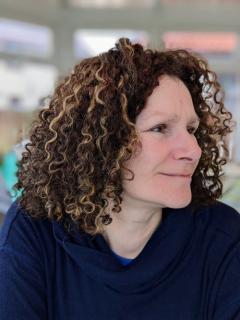Chaplaincy Guidance and Consultancy
Our expertise is sought after and valued by a range of clients. Our University Chaplaincy is regularly engaged by universities from across the UK and around the world, as a flagship Multi-faith and Belief Chaplaincy running an award-winning Listening Service. We also advise hospitals and other public service organisations in matters relating to Chaplaincy, Multi-faith and Belief work, and Listening Service provision, providing independent advice and specialist expertise.

Who and How we help
Our University Chaplain, Revd Dr Harriet Harris, heads up an award-winning Chaplaincy. She offers consultancy services for Senior Leadership, Senior Chaplains, Directors of Wellbeing in Universities and other organisations seeking to establish or further develop Chaplaincy Services, and to understand the huge benefit that Chaplaincies can bring to institutions. She was awarded an MBE in 2017 for Services to Multi-Faith Education and Community Cohesion, and elected a Fellow of the Royal Society of Edinburgh in 2021 for her innovative work in universities.

See testimonials and publications about her Chaplaincy work below.*
Harriet helps organisations to have thriving and well-supported Chaplaincies that deepen the sense of belonging and thoughtfulness within their communities. She can benefit your organisation in leading and guiding Chaplaincy in a range of ways (including workshops, trainings, consultancy conversations).
Leadership, vision and communication, by helping you to:
- Understand and communicate the substantial impact and potential of Chaplaincies within organisations, and in secular contexts
- Grow your vision for Chaplaincy within your particular setting
- Find the most fitting name for ‘Chaplaincy’ within your institution
- Appreciate the significant differences between Chaplaincy and Counselling, to the benefit of both forms of provision
- Debunk myths that Chaplaincies are only for religious people, whilst also excelling in religious provision to your diverse community
- Show that Chaplaincies support staff (and not only students, patients, clients)
- Develop new ideas, products and processes, and swap burnout for abundance** and creativity amongst Chaplains and all whom they support.
** For Harriet’s bespoke Abundant Academy programme for Chaplains and others in Higher Education, contact Monica.Dearden@ei.ed.ac.uk
Management, by helping you to:

- Support your Chaplains with grading and reporting structures appropriate to their reach and expertise
- Think through the optimal line-management and reporting processes for Chaplaincy that help support the breadth and depth of the Service (beyond student wellbeing)
- Cultivate Multi-faith and Belief diversity, and experience the powerful EDI influence that Chaplaincies bring to bear
- Bring together, train and effectively support a diverse Chaplaincy team, within which many members are likely to be volunteers
- Establish the Chaplaincy facilities and estate that will most benefit your institution
- Appropriately support the Listening provision that Chaplaincies naturally offer to members at all levels of your organisation
- Develop an out of hours service if desired
- Acquire and work with interns or research associates.
Benefits you will see
A Chaplaincy that will be the first place in people’s minds to go to for:
- Fast, accessible and flexible support for individuals and groups on personal and existential matters
- A confident, valued and dependable Service you will be glad to have for referrals
- Advice on practical or spiritual matters relating to religion and belief
- Experience in enhancing good campus relations, especially in the midst of tensions
- Facilities, practices, networks, and skills that foster a sense of belonging
- Dependability and wisdom in responding to local emergencies and international crises
- Reliability and expertise for formal or liturgical functions
- Well-supported Chaplains who are trusted to give wise, compassionate and courageous support in service of the flourishing of university members.
Consultancy is key to the University's drive to transfer knowledge from academia to industry, and is supported by the Consultancy Office at Edinburgh Innovations
Edinburgh Innovation's Consultancy Office
Government support for consultancy
The public sector sponsors a number of schemes to encourage the transfer of knowledge from Scotland's world-class academic science base into business and industry, especially SMEs.
Contact Us
To discuss how we can support you with bespoke consultancy, and associated costings, please contact Monica Dearden, Monica.Dearden@ei.ed.ac.uk
*Testimonials supporting Chaplaincy consultancy
The Revd Dr Harriet Harris of the Chaplaincy of the University of Edinburgh has brought a well-constructed space and purpose to several things that we have done together. This has enabled discussions to go further and deeper than would have otherwise been the case. At an individual level, this has enabled me to be more present to the staff and students who I am privileged to work with, more understanding of my own actions and inactions, and more able to appreciate diverse views. At an organisational level, and perhaps more indirectly, working with Harriet has enabled us to have braver, more confident discussions in the workplace and to pay attention to our purpose as a University and our role in society.
Professor Charlotte L. Clarke DSocSc PhD, Executive Dean, Faculty of Social Science & Health, University of Durham.
I very much appreciated meeting you and the time you gave to explain your model and delivery of Chaplaincy. Following my visit I submitted a detailed report to our Directorate setting out my thoughts and reflections on the possible design of a new Centre here. I was able to use many very helpful ideas I gained from you to explain what could be achieved through the USPs of a well-equipped and resourced Chaplaincy Centre.
I am pleased to say that following a lengthy consultation procedure, we have just been informed of the Directorate’s decision to allocate the funds to provide us with new and improved accommodation in an existing building which will be altered to meet our needs. This is a huge step forward for us…
Thank you for sharing your experience and wisdom, for making me feel welcome and for your personal interest.
(Former) Chaplain, University of Central Lancashire
The University Chaplain, Rev Dr Harriet Harris, was invited to join the interview panel for recruiting Heriot-Watt University’s new Chaplain in March 2022. As Deputy Principal (Education and Student Life) I chaired the panel.
Heriot-Watt University has five campuses; three in Scotland and one each in Dubai and Malaysia. Operating as a single, globally integrated, University it is critical to the successful delivery of the academic and wider student experience that our Chaplaincy and Student Wellbeing Services are attuned to the different faith and cultural contexts in which we work. To this end the University Chaplain has a pivotal role not only in offering spiritual and pastoral support across the entire community, but promoting religious literacy, respect for cultural difference, and mutual understanding at every level. Without this particular expertise, the University’s strategic policy development and operational delivery is inhibited, and the risk of taking actions resulting in religious or cultural misunderstanding elevated. This is particularly the case for a University such as Heriot-Watt which operates globally, with a large number of international students studying in more than one country over the course of their degree.
Harriet’s professional expertise combined with her knowledge and understanding of the place of Chaplaincy within higher education meant her contribution to the panels’ work was highly effective and influential. She brought a well informed and nuanced view of Chaplaincy work within different cultural settings, offering challenge and support throughout the recruitment process. The candidate appointed has proved to be an excellent ‘fit’ for the Heriot-Watt role. In my view the value of Chaplaincy input to other senior University appointments is clear, and would bring perspectives to bear which are too often marginalised, to the detriment of the outcome.
Professor John W Sawkins , Heriot-Watt University
I have really appreciated Harriet’s support as an external peer reviewer and Consultant as we have benchmarked our Chaplaincy and Faith Support provision at Durham University. We have benefited greatly from her experience and expertise as well as her sensitivity and wisdom. With Chaplaincy, Harriet ‘gets it’ and is able to help others do so too.
The Revd Gavin Wort, Lead Chaplain, University of Durham
Edinburgh Napier University decided to revive its Chaplaincy service after a period of dormancy in 2018 and relaunched a service to all staff and students in Janaury 2019. Significant support, advice and guidance was offered by Revd Dr Harriet Harris, University Chaplain at Edinburgh University to assist the Edinburgh Napier Chaplaincy Steering group to launch its new multi-faith honorary Chaplaincy to great success. Harriet generously provided her time to guide Mark Wilkinson, Head of Wellbeing and Inclusion to find the right model, structure and personnel for the new service in order that it could service the needs of staff and students whilst fulfilling its equality, diversity and inclusion goals.
Mark Wilkinson, Head of Wellbeing and Inclusion, Edinburgh Napier University
Harriet and her team have offered compassionate, practical, and substantial support that has enabled some of my most troubled students to continue and complete their studies. Harriet also contributes uniquely to the intellectual life of the College and University. She has led in creating a range of innovative academic resources that provide a space for critical and constructive engagement with big questions about the life and role of the University. These are academically rigorous and also ethically and spiritually grounded resources wholly inclusive for the diverse University community. Harriet contributes in many other ways, too many to list, such as running staff/student reading groups, spiritual discussions, leading on important community events such as memorials to the victims of the New Zealand hate attacks. Harriet contributes enormously to making the University an institution with a soul, and heart, and mind in conversation with each other.
Nomination for a CAHSS Recognition Award in the The Head of College Award for Exceptional Service category.
What I have come to understand over the nine years that I have come to know Harriet, is that the Chaplaincy is the life blood of the University, its very heart, soul and backbone and its moral, ethical and spiritual guiding light and Harriet as its Chaplain is at its very core, setting the tone, holding the space, creating a sanctuary of care, compassion, understanding and unconditional positive regard .
Harriet has the effortless ability to draw and bring people together to create consensus if that is what is needed. To enable others to be the best of themselves. To create something that is more than the sum of its parts, that has wings of its own, to grow and develop and fly. She has the extraordinary ability to understand and synthesise what someone wants to achieve at their core, and then to facilitate them in bringing it to fruition bringing all the necessary people and resources together , to achieve the end result ,nurturing it all the while.
I came to her with the idea of creating an Award for Outstanding Achievement in the face of all Adversity in my daughter’s name. The purpose of the award was to honour and acknowledge the extraordinary achievements of those students who achieve academic excellence in spite of exceptional life challenges, whether as a consequence of physical or mental ill health, disability or the occurrence of a life changing event ,recognising their super human effort, courage ,tenacity and grit. Harriet immediately understood the significance of such an award for the students, for the wider University community, for us as a family and for my daughter, and did everything she could to bring it to fruition. That was 9 years ago and many lives have since been touched as a consequence, many students recognised, who may otherwise have gone unseen and unacknowledged.
Michelle Sciama LLb Hons, High-Performance Leadership Coach and Business Strategy Consultant
*Harriet’s Chaplaincy work features in a number of publications, including:
- Dancing in the Dark: A Survivor’s Guide to the University, by Anne Pirrie, Nini Fang, and Elizabeth O’Brien (2022)
- The Wellbeing Toolkit for Doctors, by Dr Lesley Morrison (2021)
- Vygotsky's Children: Georgetown and Oxbridge Students Meet Urban Youth , by John C Hirsh (2017)
- ‘Burnout, Mistreatment and Stress’, by Marti Balaam and Harriet Harris, in A Practical Guide for Medical Teachers 6e, eds. John Dent, Ronald Harden and Dan Hunt (Elsevier, 2021), pp. 369-376.
- ‘Compassion: human and divine’, by Harriet Harris in Made in the Image God: Being Human in the Christian Tradition, eds. Michael Fuller & David Jasper (Sacristy Press, 2021), pp. 113-133.
- ‘And finally….’, by Harriet Harris, Expository Times, 134/4, January 2023: 200
- ‘Atheisms and the Power to be confronted’, by Harriet A. Harris, in Atheisms: The Philosophy of Non-Belief (2023)f, ed. by Harriet A. Harris and Victoria S. Harrison

Edinburgh Innovations (EI) is the University of Edinburgh's commercialisation service. EI leads the University's Activities in Industry engagement and business development, enterprise support for students and staff, and the identification, management and commercialisation of University intellectual property. EI supports around 130 collaborative research projects a year between the University and business, public sector bodies and other organisations, including international and multinational partners.

